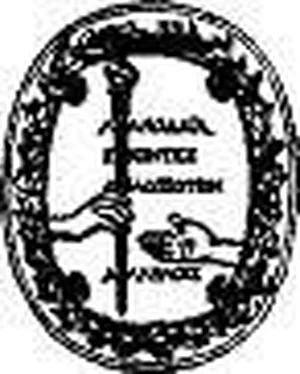Herbert Wells - Tales of Space and Time
Здесь есть возможность читать онлайн «Herbert Wells - Tales of Space and Time» весь текст электронной книги совершенно бесплатно (целиком полную версию без сокращений). В некоторых случаях можно слушать аудио, скачать через торрент в формате fb2 и присутствует краткое содержание. Жанр: Фантастика и фэнтези, на английском языке. Описание произведения, (предисловие) а так же отзывы посетителей доступны на портале библиотеки ЛибКат.
- Название:Tales of Space and Time
- Автор:
- Жанр:
- Год:неизвестен
- ISBN:нет данных
- Рейтинг книги:4 / 5. Голосов: 1
-
Избранное:Добавить в избранное
- Отзывы:
-
Ваша оценка:
- 80
- 1
- 2
- 3
- 4
- 5
Tales of Space and Time: краткое содержание, описание и аннотация
Предлагаем к чтению аннотацию, описание, краткое содержание или предисловие (зависит от того, что написал сам автор книги «Tales of Space and Time»). Если вы не нашли необходимую информацию о книге — напишите в комментариях, мы постараемся отыскать её.
Tales of Space and Time — читать онлайн бесплатно полную книгу (весь текст) целиком
Ниже представлен текст книги, разбитый по страницам. Система сохранения места последней прочитанной страницы, позволяет с удобством читать онлайн бесплатно книгу «Tales of Space and Time», без необходимости каждый раз заново искать на чём Вы остановились. Поставьте закладку, и сможете в любой момент перейти на страницу, на которой закончили чтение.
Интервал:
Закладка:
And it was Elizabeth who was the first to speak, after an aching, dull interspace of days: not, indeed, of the foolish little name that was a name no longer, but of the darkness that brooded over her soul. They had come through the shrieking, tumultuous ways of the city together; the clamour of trade, of yelling competitive religions, of political appeal, had beat upon deaf ears; the glare of focussed lights, of dancing letters, and fiery advertisements, had fallen upon the set, miserable faces unheeded. They took their dinner in the dining-hall at a place apart. "I want," said Elizabeth clumsily, "to go out to the flying stages—to that seat. Here, one can say nothing...."
Denton looked at her. "It will be night," he said.
"I have asked,—it is a fine night." She stopped.
He perceived she could find no words to explain herself. Suddenly he understood that she wished to see the stars once more, the stars they had watched together from the open downland in that wild honeymoon of theirs five years ago. Something caught at his throat. He looked away from her.
"There will be plenty of time to go," he said, in a matter-of-fact tone.
And at last they came out to their little seat on the flying stage, and sat there for a long time in silence. The little seat was in shadow, but the zenith was pale blue with the effulgence of the stage overhead, and all the city spread below them, squares and circles and patches of brilliance caught in a mesh-work of light. The little stars seemed very faint and small: near as they had been to the old-world watcher, they had become now infinitely remote. Yet one could see them in the darkened patches amidst the glare, and especially in the northward sky, the ancient constellations gliding steadfast and patient about the pole.
Long our two people sat in silence, and at last Elizabeth sighed.
"If I understood," she said, "if I could understand. When one is down there the city seems everything—the noise, the hurry, the voices—you must live, you must scramble. Here—it is nothing; a thing that passes. One can think in peace."
"Yes," said Denton. "How flimsy it all is! From here more than half of it is swallowed by the night.... It will pass."
"We shall pass first," said Elizabeth.
"I know," said Denton. "If life were not a moment, the whole of history would seem like the happening of a day.... Yes—we shall pass. And the city will pass, and all the things that are to come. Man and the Overman and wonders unspeakable. And yet ..."
He paused, and then began afresh. "I know what you feel. At least I fancy.... Down there one thinks of one's work, one's little vexations and pleasures, one's eating and drinking and ease and pain. One lives, and one must die. Down there and everyday—our sorrow seemed the end of life....
"Up here it is different. For instance, down there it would seem impossible almost to go on living if one were horribly disfigured, horribly crippled, disgraced. Up here—under these stars—none of those things would matter. They don't matter.... They are a part of something. One seems just to touch that something—under the stars...."
He stopped. The vague, impalpable things in his mind, cloudy emotions half shaped towards ideas, vanished before the rough grasp of words. "It is hard to express," he said lamely.
They sat through a long stillness.
"It is well to come here," he said at last. "We stop—our minds are very finite. After all we are just poor animals rising out of the brute, each with a mind, the poor beginning of a mind. We are so stupid. So much hurts. And yet ...
"I know, I know—and some day we shall see .
"All this frightful stress, all this discord will resolve to harmony, and we shall know it. Nothing is but it makes for that. Nothing. All the failures—every little thing makes for that harmony. Everything is necessary to it, we shall find. We shall find. Nothing, not even the most dreadful thing, could be left out. Not even the most trivial. Every tap of your hammer on the brass, every moment of work, my idleness even ... Dear one! every movement of our poor little one ... All these things go on for ever. And the faint impalpable things. We, sitting here together.—Everything ...
"The passion that joined us, and what has come since. It is not passion now. More than anything else it is sorrow. Dear ..."
He could say no more, could follow his thoughts no further.
Elizabeth made no answer—she was very still; but presently her hand sought his and found it.
IV
UNDERNEATH
Under the stars one may reach upward and touch resignation, whatever the evil thing may be, but in the heat and stress of the day's work we lapse again, come disgust and anger and intolerable moods. How little is all our magnanimity—an accident! a phase! The very Saints of old had first to flee the world. And Denton and his Elizabeth could not flee their world, no longer were there open roads to unclaimed lands where men might live freely—however hardly—and keep their souls in peace. The city had swallowed up mankind.
For a time these two Labour Serfs were kept at their original occupations, she at her brass stamping and Denton at his press; and then came a move for him that brought with it fresh and still bitterer experiences of life in the underways of the great city. He was transferred to the care of a rather more elaborate press in the central factory of the London Tile Trust.
In this new situation he had to work in a long vaulted room with a number of other men, for the most part born Labour Serfs. He came to this intercourse reluctantly. His upbringing had been refined, and, until his ill fortune had brought him to that costume, he had never spoken in his life, except by way of command or some immediate necessity, to the white-faced wearers of the blue canvas. Now at last came contact; he had to work beside them, share their tools, eat with them. To both Elizabeth and himself this seemed a further degradation.
His taste would have seemed extreme to a man of the nineteenth century. But slowly and inevitably in the intervening years a gulf had opened between the wearers of the blue canvas and the classes above, a difference not simply of circumstances and habits of life, but of habits of thought—even of language. The underways had developed a dialect of their own: above, too, had arisen a dialect, a code of thought, a language of "culture," which aimed by a sedulous search after fresh distinction to widen perpetually the space between itself and "vulgarity." The bond of a common faith, moreover, no longer held the race together. The last years of the nineteenth century were distinguished by the rapid development among the prosperous idle of esoteric perversions of the popular religion: glosses and interpretations that reduced the broad teachings of the carpenter of Nazareth to the exquisite narrowness of their lives. And, spite of their inclination towards the ancient fashion of living, neither Elizabeth nor Denton had been sufficiently original to escape the suggestion of their surroundings. In matters of common behaviour they had followed the ways of their class, and so when they fell at last to be Labour Serfs it seemed to them almost as though they were falling among offensive inferior animals; they felt as a nineteenth-century duke and duchess might have felt who were forced to take rooms in the Jago.
Their natural impulse was to maintain a "distance." But Denton's first idea of a dignified isolation from his new surroundings was soon rudely dispelled. He had imagined that his fall to the position of a Labour Serf was the end of his lesson, that when their little daughter had died he had plumbed the deeps of life; but indeed these things were only the beginning. Life demands something more from us than acquiescence. And now in a roomful of machine minders he was to learn a wider lesson, to make the acquaintance of another factor in life, a factor as elemental as the loss of things dear to us, more elemental even than toil.
Читать дальшеИнтервал:
Закладка:
Похожие книги на «Tales of Space and Time»
Представляем Вашему вниманию похожие книги на «Tales of Space and Time» списком для выбора. Мы отобрали схожую по названию и смыслу литературу в надежде предоставить читателям больше вариантов отыскать новые, интересные, ещё непрочитанные произведения.
Обсуждение, отзывы о книге «Tales of Space and Time» и просто собственные мнения читателей. Оставьте ваши комментарии, напишите, что Вы думаете о произведении, его смысле или главных героях. Укажите что конкретно понравилось, а что нет, и почему Вы так считаете.





